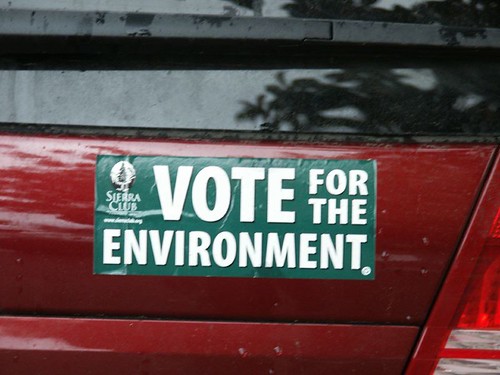
By Chris Olson, Outreach Coordinator
Mikaila did a great job of laying out the four Environmental Priorities for 2009. I am excited to be a part of Earth Ministry's advocacy efforts this year, but I still have a lot to learn about the legislative process. I would like to run through a quick step-by-step of how a bill becomes a law in an effort to educate myself and remind others of the process as well. Some of you may have fond memories of the old School House Rock video "I'm Just a Bill" which also walked through these steps in a more musical fashion. Click on the picture of "Bill" or this link to watch the video of this TV classic.
I compiled the information here from two publications created by the Washington State Legislature's office.
- A bill may be introduced in either the Senate or House of Representatives. The procedure by which a bill becomes a law is much the same, wherever the bill originates. For our purposes, we will say the bill was introduced in the Senate.
- A committee studies the bill and often holds public hearings on it. The committee will then meet to consider the information it has gathered.

- The committee is now ready to report back to the Senate. If the majority is in favor of the bill the chairman recommends the bill for passage. The committee report is read in open session of the Senate, and the bill is then referred to the Rules Committee.
- The Rules Committee can either place the bill on the second reading calendar for debate before the entire body, or take no action.
- At the second reading a bill is subject to debate and amendment before being placed on the third reading calendar for final passage. Depending upon the degree of controversy, debate may last a few minutes to several hours--or even several days.
- After passing in the Senate, the bill will go through an almost identical procedure in the House.
- If the bill is passed by the house, but is amended, the Senate must concur in the amendments.
- When the bill is accepted in both houses, it is signed by the respective leaders and sent to the Governor.
- The Governor signs the bill into law or may veto all or part of it. The Legislature can override the veto by a two-thirds vote of both houses. That's how a bill becomes a law!
Happy 2009!












































